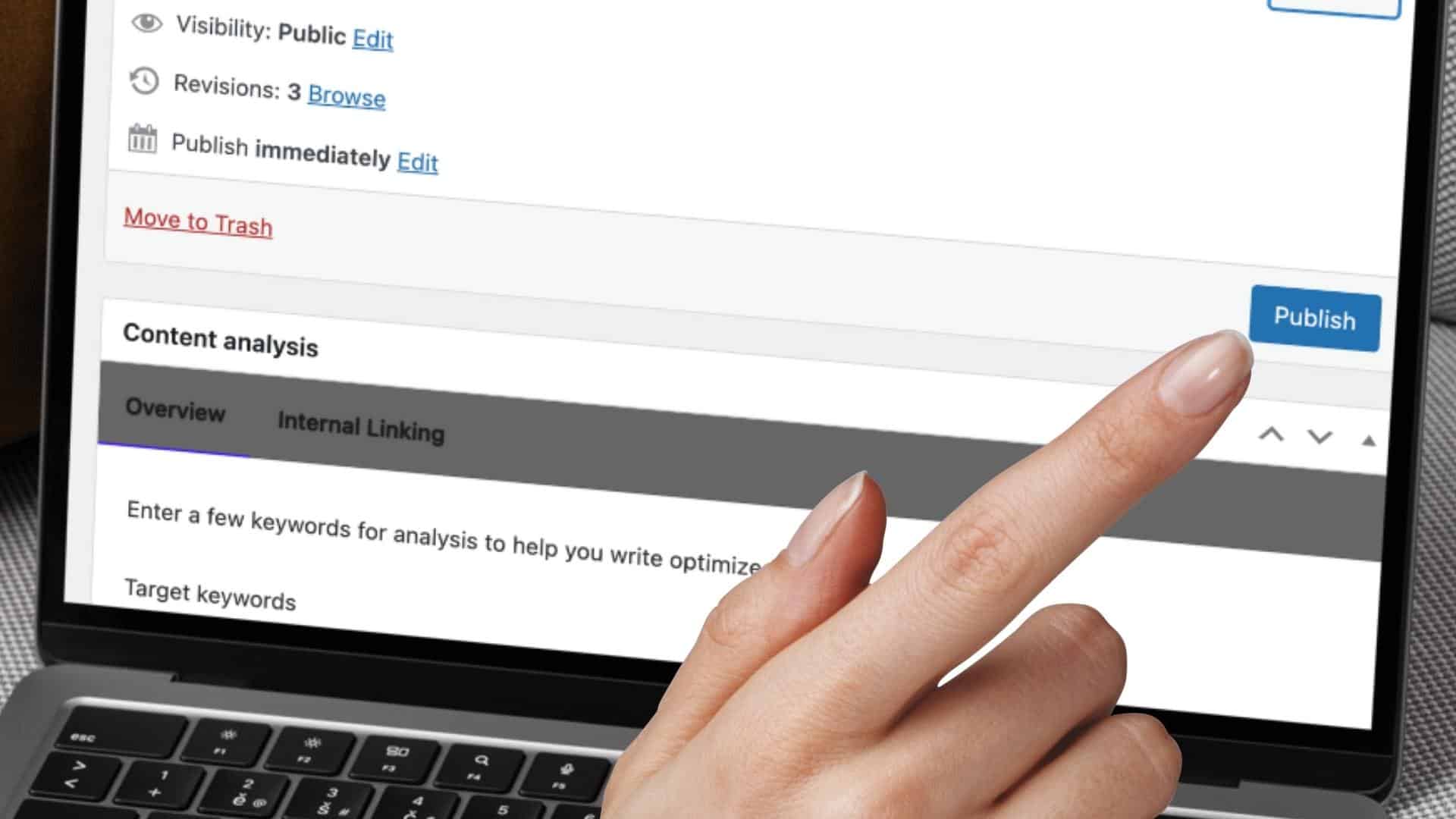To convince readers, you need to base your articles on facts you get from researching the story. But to trust the information you find, you’ll need a system for verification.

A content publisher is about to push the “publish” button on a post. (Illustration by News Decoder)
In News Decoder’s Top Tips, we share advice for young people from experts in journalism, media literacy and education. In this week’s Top Tip, Uschi Jonas, a factchecker for Correctiv in Germany gives us some advice for verifying information when you do research for a story.
You can find more of our learning resources here. And learn how you can incorporate our resources and services into your classroom or educational program or by forming a News Decoder Club in your school.
There’s an overwhelming amount of information we are confronted with on the internet every day.
“Sometimes it’s difficult to distinguish between credible and false information,” said Uschi Jonas, a journalist and head of the factchecking team at Correctiv, an independent media outlet in Germany. “But there are some things every newsreader could learn from professional factcheckers.”
Jonas provided tips for researching news or other content on the Internet so that the content you produce — whether that’s a podcast or article or video — will be trustworthy.
When you come across a post on social media, Jonas said, take a moment before you believe what you read or see or share it.
“Have a few browser tabs open whenever you are reading the news to see what other sources are saying,” Jonas said.
Develop a verification system.
Jonas suggests taking a few steps when you pull up an article or post on the Internet:
1. Is the post or article you found the original source for the information?
See if you can tell who first reported it and then go to that source. “See if the retelling matches the original,” Jonas said.
2. Try to find the author on Google or some other search engine.
“Is the person a credible journalist or subject matter expert in the field for which they are disseminating information?” Jonas said. “Are there perhaps fact checks on the person?”
She suggested that you try adding the words “fact check” into the Google search or use Google Fact Check Explorer, which is a way to search fact checks that have been published.
This article was adapted from a video interview with Uschi Jonas produced as part of News Decoder’s partner project Mobile Stories. Mobile Stories is a publishing tool for young people. It provides guidance on how to create trustworthy news content while upholding journalist ethics.
Watch Uschi Jonas’ full video here:
“If you see that a person has lied in the past you should carefully consider whether it is a good idea to trust them,” Jonas said.
3. Find other sources that seem to be reporting the same thing.
“Sometimes you will find that different sources interpret the same event very differently,” Jonas said. “Think about which sources you should trust more.”
Information in research articles, journalistic publications or academic experts and institutions are generally more reliable than blog contributors or social media posts, Jonas said.
Be a bit skeptical, too, she said, when a publication or podcast or post seems to mix information with emotion and see if you can separate out factual reporting with opinion.
Incorporating this healthy skepticism and adopting a system for verifying information will help you build a reputation for credibility and reliability. This is useful not just in your reporting, Jonas said, but in your daily life, as well.
Questions to consider:
1. What is meant by a system of verification?
2. Why should you check for information about the author of an article or post you read?
3. How can a healthy skepticism be useful in your daily life?
💡 More Tips Like This
This story is part of News Decoder’s open access learning resources.
Whether you’re a secondary student, studying at university or simply interested in learning new things, we can help you build your journalism skills and better understand big global issues.
If you are a student or a member of a News Decoder Club, check out our other learning resources.
If you are a teacher, check out our other classroom resources:
- News in the Classroom
- Educator’s Catalog of classroom exercises
And ask us about joining the News Decoder Club program.
